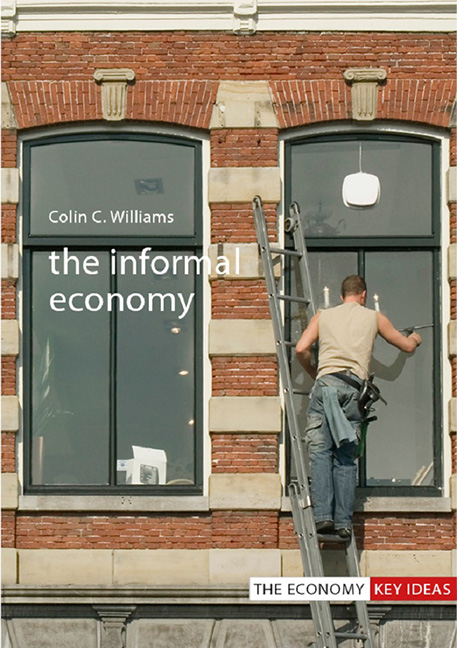6 - Conclusions and future directions
Published online by Cambridge University Press: 09 August 2023
Summary
Introduction
The aim of this concluding chapter is to synthesize the material from the previous chapters and to draw conclusions about the way forward for measuring, explaining and tackling the informal economy. To do so, the starting point is the set of questions posed at the start of this book. What different theories have been used to explain the informal economy and how have the dominant theoretical explanations changed over time? How can the informal economy be measured and what is its size? What types of informal work exist, who does it and what are their motives for participating in the informal economy? And what policy options are available for tackling the informal economy? What is the current approach being pursued and why, and what alternative policy approaches and measures might be instead used to tackle the informal economy? In this concluding chapter, how these questions have been answered will be reviewed along with fruitful future directions for research on the informal economy.
Defining the informal economy
Reviewing the competing enterprise-, jobs- and activity-based definitions, the informal economy was defined in Chapter 1 as socially legitimate paid work that is not declared to, hidden from, or unregistered with, the authorities for tax, social security and/or labour law purposes when it should be declared. If the activity is illegal in other respects and/or deemed socially illegitimate, then this activity is not considered part of the informal economy but instead part of the criminal economy (e.g. forced labour, selling stolen goods, trafficking illegal drugs) which is both illegal from the viewpoint of formal institutions and illegitimate from the viewpoint of informal institutions. Given the strong consensus amongst scholars about what is the informal economy, and what is not, there is seen to be little need for future research to expend much energy on defining the informal economy.
The only issue that might be considered in this regard is that the above definition of the informal economy adopted in this book gives a little too much emphasis to agency when defining the informal economy.
- Type
- Chapter
- Information
- The Informal Economy , pp. 111 - 120Publisher: Agenda PublishingPrint publication year: 2019

